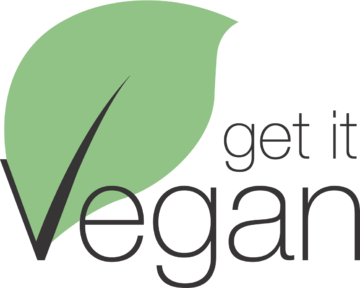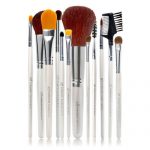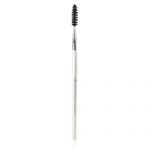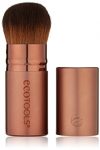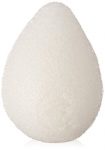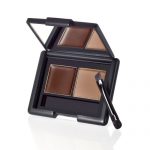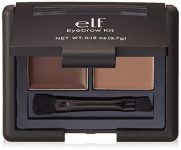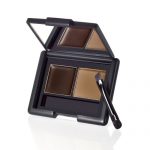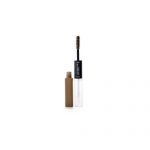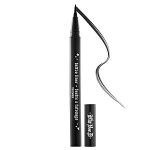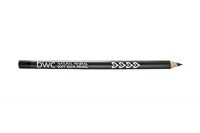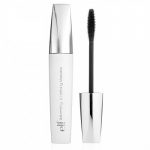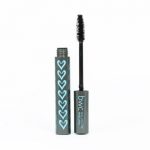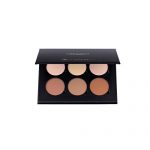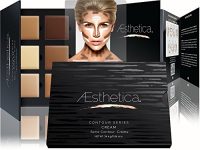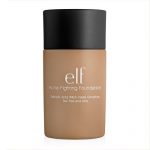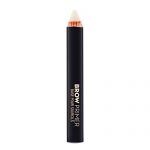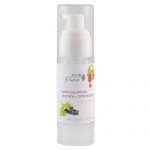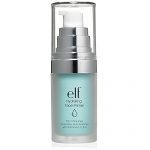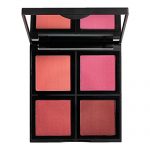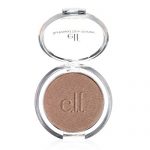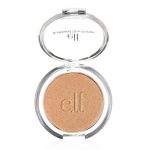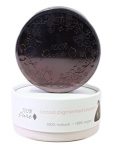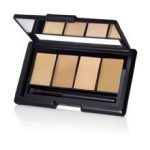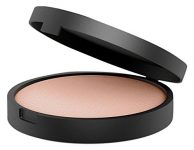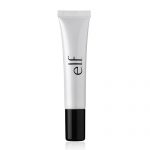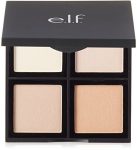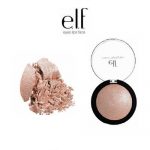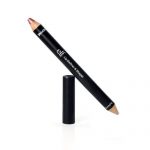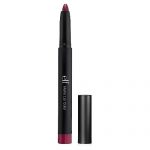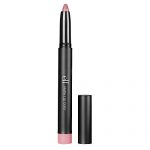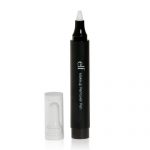Makeup
Vegan and cruelty free makeup. Whether for yourself or a discerning woman in your life, you can buy any of the makeup and makeup accessories on our site with the assurance that these products are 100% free of animal by-products and testing.
Eyes
Face
Lips
What does it mean when makeup is “vegan” & “cruelty-free”?
The term “vegan”, with regard to makeup, means that it doesn't contain ingredients that are derived or sourced from animals or insects. The term “cruelty-free” however, refers to makeup that’s free of animal testing, including the individual ingredients used in those products.
In other words, ‘cruelty-free’ refers to the testing methods, while ‘vegan’ refers to the origin of the ingredients.
What animal derived ingredients are commonly used in makeup?
It may seem strange that in this day and age animal and insect by-products are still included in things that are rubbed onto your face, but it happens. Below is an overview of some of the most common animal and insect-derived and sourced ingredients that can be found in different kinds of non-vegan makeup.
Honey: Or “mel” or “miel” as you may see it on labels, is a saccharic secretion gathered and stored by honey bees. Essentially, it’s food for bees, made by bees. Used as a colouring agent and an emollient (provides creaminess and staying power) in certain eyeshadows, highlighter and other makeup. Fortunately, there are several plant-based colours and oils that easily replace honey in makeup products.
Lanolin: Basically sheep sweat, lanolin is a product of the oil glands of sheep, extracted from their wool. Used as an emollient in many makeup products. The cruelty towards sheep in the wool (and as a byproduct lanolin) industry is often overlooked but well documented: “inferior” sheep are killed; sheep are transported without food or water, in extreme heat and cold, legs are broken, eyes injured, castration without anaesthetics…and it goes on. Fortunately for vegans and the animals themselves, plant and vegetable oils are superior to lanolin.
Glycerin/animal fats and oils: Basically glycerin is animal fatty tissue. The carcasses used to obtain the glycerin and other fats/oils can come from a myriad of unfortunate sources such as labs, slaughterhouses, zoos, shelters, and ‘roadkill’. Glycerin is primarily used in makeup as an emollient, to soften or soothe the skin. Fortunately, glycerin can also be derived from plants.
Carmine: Also known as “Cochineal” or “Carminic Acid”, carmine is a red pigment that’s used in eyeliners, highlighters, lipstick, eyeshadow and other cosmetics to achieve certain hues of red. It’s obtained by crushing the female cochineal insect. Reportedly, around 70,000 female beetles must be killed to produce one pound of this red dye. Vegan alternatives to carmine include beet juice, alkanet root and synthetics dyes.
Silk & Animal Fur/Hair: False eyelashes (or “falsies”) and “natural” makeup brushes are commonly made from animal sourced materials such as silk, mink fur, sable fur and hair horse hair, among others. Sometimes brushes or false lashes will say their fur/hair is “ethically sourced” or “origin assured”to try and dupe you into thinking that no animals were harmed in obtaining these materials; sadly though, this typically isn’t the case. Vegan alternatives to silk, animal hair/fur include synthetic false lashes and synthetic brush bristles.
Lactic Acid: When animal-derived, it’s found in blood and muscle tissue. It’s used in makeup remover as an exfoliant, and it’s widely used in anti-wrinkle and eye makeup products. Vegan alternatives to lactic acid include plant-based sources such as beets, or can be produced synthetically in a lab.
Beeswax: Often written as “Cera Alba” on makeup labels, beeswax is made from melting honeycomb with boiling water, straining it, and cooling it. It’s commonly used in gel and cream makeup as a thickener, and an emollient. It also happens that many bees are killed or have their wings and legs torn off because of haphazard handling when they are farmed. Vegan alternatives to beeswax include candelilla wax, soy wax, sustainable carnauba wax and cerecin.
Squalene: Also known as “shark liver oil”, or “squalane”, its typically derived from shark livers. Squalene is used in eyeshadow, eyeliner, foundation, concealer and many other types of cosmetics as a moisturizer, and for it’s reported anti-aging effects. Vegan alternatives to squalene include plant-based oils, most notably olive oil and palm oil.
Is “not tested on animals” the same as “cruelty-free”?
When shopping for makeup, you’re sure to come across of myriad of statements on labels that are meant to mislead you into believing that the product you're buying is 100% cruelty-free.
Unfortunately, since these terms are unregulated, companies can essentially use them in any way they see fit, much in the same way that sugary breakfast bars use the term “natural ingredients” on their packaging. It really means nothing.
For example, here are some common misleading statements you might find on a makeup label, and what they actually mean:
“Against animal testing”
- Just words on a box. This could mean that the company is opposed to animal testing, but does it anyways.
“We don’t test on animals”
- This makeup was not tested on animals, but its individual ingredients were.
“Cruelty-free”
- Could mean anything, without 3rd party verification, they’re expecting you to take it on blind faith. Oftentimes it’s an outright lie.
So then how can I be sure the makeup I’m buying is cruelty-free?
Despite the rampant deception in the world of cosmetics sales, there are several legitimate third party certification bodies that independently assess whether or not companies and products are actually abiding by recognized cruelty-free standards.
So, the best way to ensure that you’re buying cruelty-free makeup is to find one that has the symbol of one of these third party certification bodies printed on it. 3 of the most common cruelty-free symbols include:
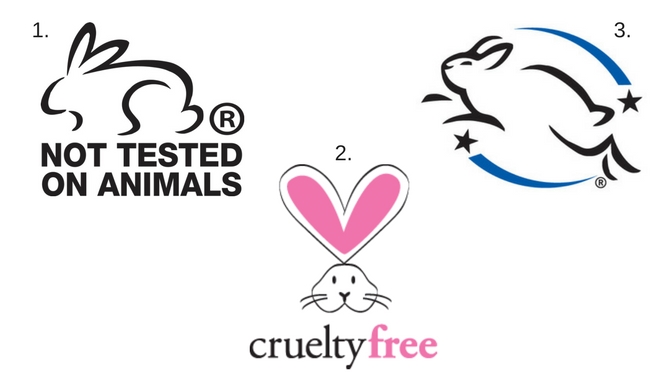
- Choose Cruelty Free Ltd.
- PETA
- The Coalition for Consumer Information on Cosmetics - Leaping Bunny Program
Don’t be fooled! Because these certification bodies all use images of bunnies, so do scammers. Before buying makeup, be sure to familiarize yourself with the logos above, so you don’t get tricked into buying something that’s not actually certified as cruelty-free!
What brands make vegan & cruelty-free makeup?
While many brands still use animal and insect ingredients in their formulations, others are going completely vegan and creating a range of high-performance makeup that’s produced without animal testing or animal-based ingredients. Some brands that produce makeup (including false lashes, brushes/tools and makeup remover) that’s completely vegan and cruelty-free include:
- ADORN
- Aesthetica
- Aether Lashes - (Lashes)
- Au Naturale Cosmetics
- Beauty Without Cruelty
- DeVita
- DEMES (Remover)
- e.l.f. Cosmetics
- Eco Tools (Brushes)
- Elate Clean Cosmetics
- Elixery Cosmetics
- Fairypants
- Furless (Brushes)
- Gabriel Cosmetics
- Georgie Beauty - (Lashes/adhesives)
- House of Lashes - (Lashes/Adhesives)
- INIKA
- LUXIE Beauty
- Pacifica
Please Note: Thankfully, there are now far too many companies to list here that offer 'vegan options' in their makeup lines, or that are mostly vegan but include beeswax or honey in some products; this list only includes those that are 100% vegan and cruelty-free.
Is vegan & cruelty-free makeup expensive?
In general, vegan and cruelty-free makeup is not any more expensive, or any less-expensive, than makeup that contains animal/insect derived or tested ingredients.
Just like non-vegan products, the prices of vegan and cruelty-free foundation, concealer, primer, eyeshadow, lipstick and other makeup products can vary based on differences in the quality and the availability of the ingredients used, differences in the manufacturing processes employed, different brands behind them, as well as a many other factors.
Why should I buy makeup that’s ‘vegan’ & ‘cruelty-free’?
The farming and sourcing of animal and insect-derived ingredients, whether it’s for makeup or not, is inherently cruel to animals… not to mention, just plain gross. It might also help to know that in many, if not all cases, plant-based ingredients are superior to animal and insect-derived ingredients.
It’s also important to buy makeup that you know is vegan & cruelty-free because it creates demand for these animal-friendly of products, and reduces demand for inhumane and inherently cruel products. It is thus a very effective form of animal-welfare activism; often referred to as ‘voting with your dollars’.
Basically, if we as consumers stop paying companies to put these grotesque and cruelty-ridden ingredients in makeup, they will stop doing it.
Similar product categories
If you’ve found this page on vegan and cruelty-free makeup helpful, check out similar product categories to learn or shop more:
- Women’s Personal Care
- Women’s Accessories
- Women’s Footwear
- Men’s Personal Care
- Men’s Accessories
- Men’s Footwear
For companies that make vegan & cruelty-free makeup
If you make vegan and cruelty-free makeup, false lashes, brushes, tools, makeup remover, or any other vegan/cruelty-free products for that matter, we’d love to feature you and your products on the “Brands We Love” section of our site! Contact us at - info(at)getitvegan(dot)com - to get started!
Sources
Part of the information for this guide on vegan & cruelty-free makeup was gathered from the following sources:
- Living: “Animal-Derived Ingredients List.” (n.d.). PETA. Retrieved July 13, 2017. https://www.peta.org/living/other/animal-ingredients-list/
- Blog: “Are Your Cosmetics Vegan?” Kourtney Linebaugh (October 27, 2012). Gentle World. Retrieved July 13, 2017. http://gentleworld.org/are-your-cosmetics-vegan/
- Find an Ingredient: “Aspartic Acid Beauty.” (n.d.). CosmeticsInfo.org. Retrieved July 13, 2017. http://www.cosmeticsinfo.org/ingredient/aspartic-acid
- Vegan Guides: “Hidden Animal Fats.” Angel Flinn (January 17, 2011). GentleWorld.org. Retrieved July 13, 2017. http://gentleworld.org/hidden-animal-fats/
- Vegan Guides: “How To Tell If Your Makeup Is Truly Vegan.” Stella Rose Saint Clair (May 14, 2013). Beutylish.com. Retrieved July 13, 2017. https://www.beautylish.com/a/vxycr/how-to-tell-if-your-makeup-is-truly-vegan
